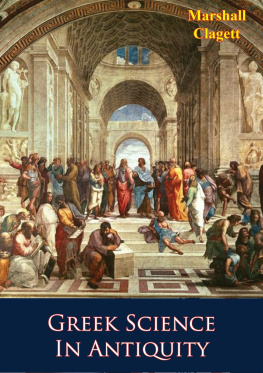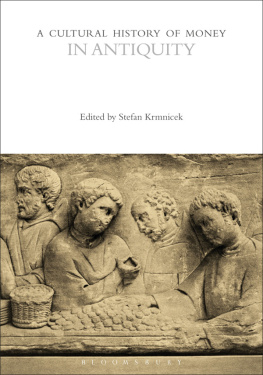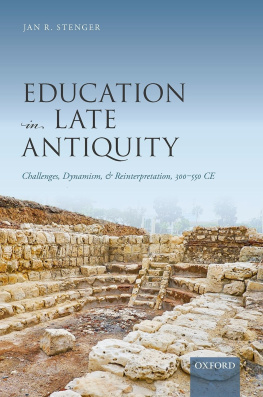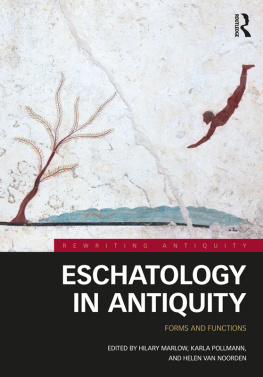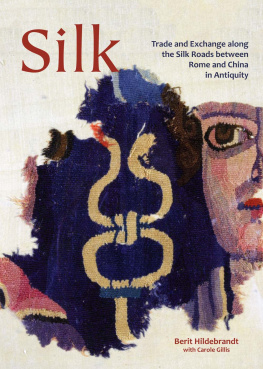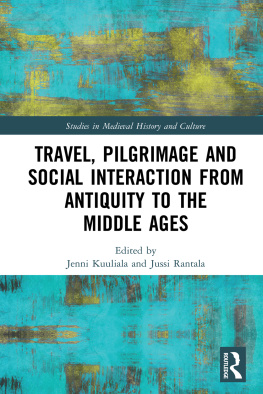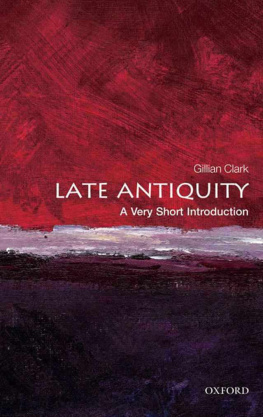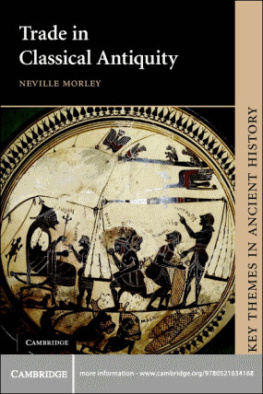
Connectivity in Antiquity
Approaches to Anthropological Archaeology
Series Editor: Thomas E. Levy, University of California, San Diego
Editorial Board:
Guillermo Algaze, University of California, San Diego
Paul S. Goldstein, University of California, San Diego
Joyce Marcus, University of Michigan
This series recognizes the fundamental role that anthropology now plays in archaeology and also integrates the strengths of various research paradigms that characterize archaeology on the world scene today. Some of these different approaches include 'New' or 'Processual' archaeology, 'Post-Processual', evolutionist, cognitive, symbolic, Marxist, and historical archaeologies. Anthropological archaeology accomplishes its goals by taking into account the cultural and, when possible, historical context of the material remains being studied. This involves the development of models concerning the formative role of cognition, symbolism, and ideology in human societies to explain the more material and economic dimensions of human culture that are the natural purview of archaeological data. It also involves an understanding of the cultural ecology of the societies being studied, and of the limitations and opportunities that the environment (both natural and cultural) imposes on the evolution or devolution of human societies. Based on the assumption that cultures never develop in isolation, anthropological archaeology takes a regional approach to tackling fundamental issues concerning past cultural evolution anywhere in the world.
Forthcoming titles in the series:
Archaeology, Anthropology and Cult
The Sanctuary at Gilat, Israel
Edited by: Thomas E. Levy
Hunter-Gatherers of the Southern California Coast
Edited by: Brian F. Byrd
Dawn of the Metal Age
Jonathan Golden
Israel's Ethnogenesis
Settlement, Interaction, Expansion and Resistance
Avraham Faust
New Approaches to Old Stones
Recent Studies of Ground Stone Artifacts
Edited by: Yorke M. Rowan & Jennie Ebeling
Structured Worlds
The Archaeology of Hunter-Gatherer Thought and Action
Edited by: Aubrey Cannon
Connectivity in Antiquity
Globalization as a Long-Term Historical Process
Edited by ystein S. LaBianca
and Sandra Arnold Scham
First published 2006 by Equinox, an imprint of Acumen
Paperback edition published 2010
Published 2014 by Routledge
2 Park Square, Milton Park, Abingdon, Oxon OX14 4RN
711 Third Avenue, New York, NY 10017, USA
Routledge is an imprint of the Taylor & Francis Group, an informa business
ystein S. LaBianca, Sandra Arnold Scham and contributors 2006
All rights reserved. No part of this book may be reprinted or reproduced or utilised in any form or by any electronic, mechanical, or other means, now known or hereafter invented, including photocopying and recording, or in any information storage or retrieval system, without permission in writing from the publishers.
Notices
Practitioners and researchers must always rely on their own experience and knowledge in evaluating and using any information, methods, compounds, or experiments described herein. In using such information or methods they should be mindful of their own safety and the safety of others, including parties for whom they have a professional responsibility.
To the fullest extent of the law, neither the Publisher nor the authors, contributors, or editors, assume any liability for any injury and/or damage to persons or property as a matter of products liability, negligence or otherwise, or from any use or operation of any methods, products, instructions, or ideas contained in the material herein.
British Library Cataloguing-in-Publication Data
A catalogue record for this book is available from the British Library.
ISBN 978 1 84553 947 4 (paperback)
Library of Congress Cataloging-in-Publication Data
Connectivity in antiquity: globalization as a long-term historical
process / edited by ystein Sakala LaBianca and Sandra Arnold Scham.
p. cm. -- (Approaches to anthropological archaeology)
Includes bibliographical references and index.
ISBN 1-904768-13-X
1. Civilization, Ancient. 2. Economic history--To 500. 3.
Commerce--History--To 500. 4. Economic history--Medieval, 500-1500. 5.
Commerce--History--Medieval, 500-1500. 6. Mediterranean
Region--Antiquities. 7. Middle East--Antiquities. I. LaBianca, ystein
Sakala. II. Scham, Sandra Arnold. III. Series.
CB311.C75 2004
382'.09'02--dc22
2004013027
Typeset by ISB Typesetting, Sheffield
Contents
|
| Thomas E. Levy |
|
| William Collins |
| William R. Thompson |
| Bethany J. Walker |
| Paul J. Ray, Jr. |
| Sheldon Lee Gosline |
|
| Leif Manger |
|
| Sandra Arnold Scham |
|
| Jenny Cashman |
| Manuel Castells |
Jenny Cashman is a research student at Lincoln College, Oxford.
Manuel Castells is Professor of Sociology and Professor of City and Regional Planning at the University of California, Berkeley.
William Collins is Professor at California State University and Doctoral Candidate, Department of Near Eastern Archaeology, University of California, Berkeley.
Sheldon Lee Gosline is Associate Professor of Egyptology and Director of the Hieratic Font Project, History Department, Northeast Normal University, Changchun, China.
ystein S. LaBianca is Professor of Anthropology and Senior Director, International Development Program, at Andrews University, Michigan.
Thomas E. Levy is Professor in the Department of Anthropology and Director of the Judaic Studies Program at the University of California, San Diego.
Leif Manger is Professor of Social Anthropology at the University of Bergen.
Paul J. Ray, Jr. is the Director of Publications, Institute of Archaeology, Andrews University.
Sandra Arnold Scham is Lecturer and Research Development Specialist, Department of Anthropology, University of Maryland and Coordinator, Negev Bedouin Identity Project, Howard University.
William R. Thompson is Professor of Political Science at Indiana University, Bloomington and President-elect of the International Studies Association.
Bethany J. Walker is Assistant Professor of Middle East History at Grand Valley State University in Allendale, Michigan.
The dream of the enlightenment, that reason and science would solve the problems of humankind, is within reach... There is no eternal evil in human nature. There is nothing that cannot be changed by conscious, purposive social action, provided with information and supported by legitimacy. If people are informed, active and communicate throughout the world; if business assumes its social responsibility; if the media become the messengers rather than the message; if political actors react against cynicism, and restore belief in democracy; if culture is reconstructed from experience; if humankind feels the solidarity of the species throughout the globe; if we assert intergenerational solidarity by living in harmony with nature; if we depart for the exploration of our inner self, having made peace among ourselves. If all this is made possible by our informed, conscious, shared decision, while there is still time, maybe then we may, at last, be able to live and let live, love and be loved.


